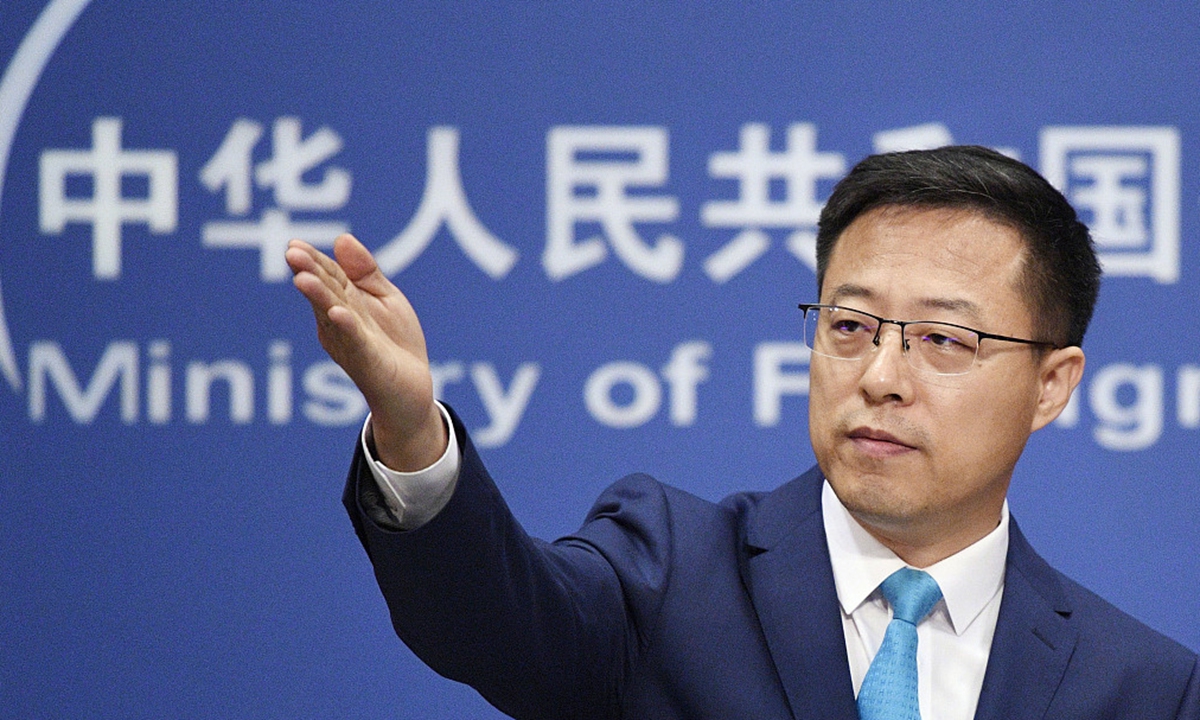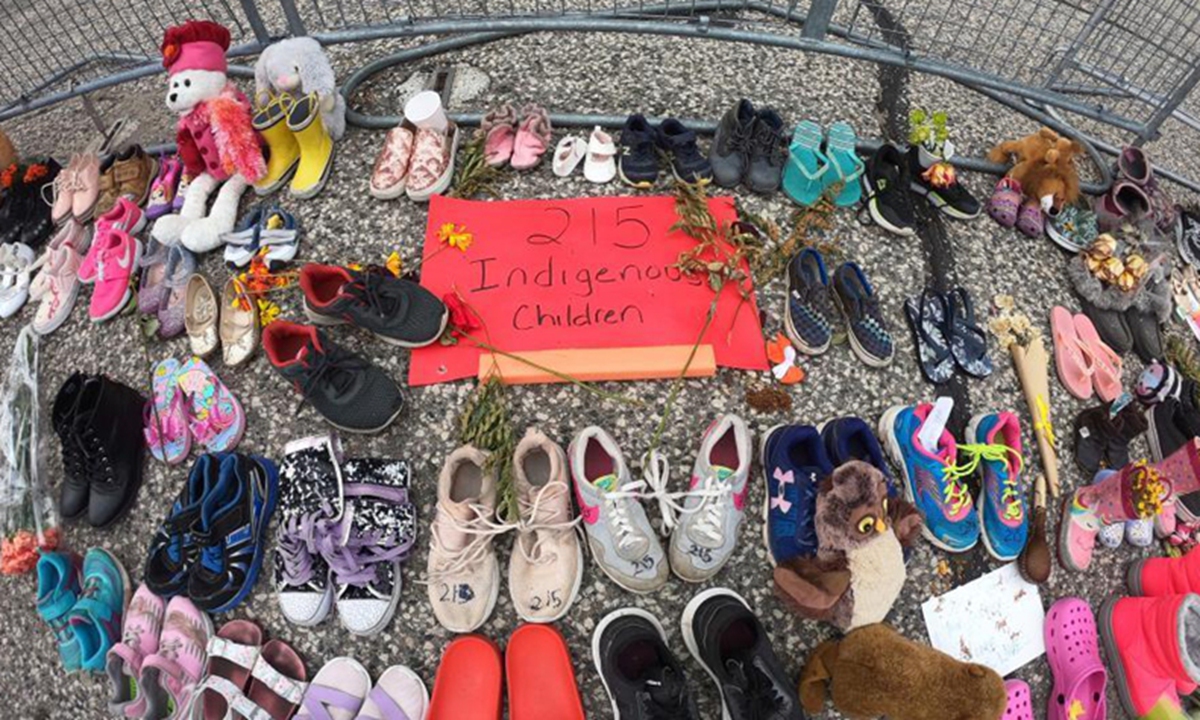
Zhao Lijian Photo: VCG
Following the discovery of a large number of bodies of indigenous people in Canada, the country’s notorious record on human rights issues was exposed to the international community, Chinese Foreign Ministry spokesperson Zhao Lijian said at a press conference on Friday, noting that the Canadian government should not only make an oral apology but it needs to put forward policies to safeguard indigenous people’s rights.
The Cowessess First Nation says it found 751 unmarked graves at the site of a former residential school in Saskatchewan. The nation said the discovery was “the most significantly substantial to date in Canada.” It comes weeks after the remains of 215 children were found at a similar residential school in British Columbia, media reported on Thursday.
China has also noticed the reports on the finding of 751 unmarked graves, Zhao said, noting that Chief Bobby Cameron of the Federation of Sovereign Indigenous First Nations in Saskatchewan called it “a crime against humanity, an assault on First Nations.”
“This is the accusation from the indigenous people to the Canadian government for its historic debt. It also shows the indigenous people’s sadness and helplessness for their current situation in Canada,” Zhao said.

Children’s shoes, dolls, flowers with notes at the front of Legislative Assembly of Ontario, Canada, to commemorate the deaths of 215 Indigenous children whose remains were found in a former residential school in Kamloops city in the country, June 2, 2021. Photo:China News Service
Throughout history, more than 150,000 indigenous children have been forcedly separated from their parents and entered into “residential scholars” to live under harsh regulations and in poor living conditions. They have also had their indigenous culture and language removed. Students were frequently mistreated, sexually assaulted and suffered from malnutrition. More than 4,000 children died in these “schools.”
These so-called schools have long existed in Canada – a country that praises itself as a “democratic” and “civilized” – and were not closed until 1997. In 2017, Canada’s Truth and Reconciliation Commission finally released a report after six years of investigation and called it a “cultural genocide.”
Zhao noted that although these “schools” have been closed, discrimination against indigenous people in Canada has not stopped. Data showed that crimes targeting indigenous people are 58 percent higher than non-indigenous people; the rate of indigenous women murdered or missing is 16 times higher than that of white females. From 1980 to 2015, several thousands of indigenous women were murdered or missing and the Canadian government has admitted that violence targeting indigenous women can be called genocide.
Facing the guilt of its history, the Canadian government has claimed it would take measures to seek the truth — but little action has been made. It shifted the responsibility of the 215 remains of children found in a residential school to the Catholic Church. These remains were found by social organizations with radar used in archeology, said Zhao.
The Canadian government has not taken action even though people still question that there may be more bodies buried under these residential schools. It is still unknown how many crimes that remained secret to people have been buried in the 139 residential schools scattered across Canada, Zhao said.
“We hope the Canadian government would not only make an oral apology or perform superficial justice. It should take more stronger measures to investigate the truth, hold relevant people accountable, make compensation and take measures to protect indigenous people’s rights,” Zhao said.
Global Times

